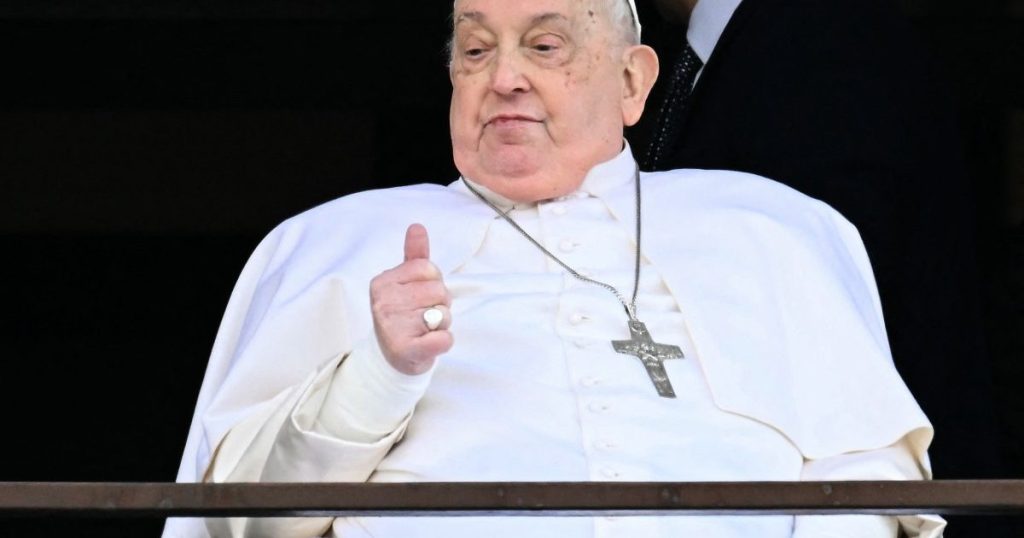Paragraph 1: A Nation Mourns Its Football-Loving Pope
The world of football in Argentina came to a standstill on Monday, April 10, 2023, as the Argentine Football Association (AFA) announced the postponement of all scheduled matches. This unprecedented decision was a mark of respect and mourning for Pope Francis, the former Archbishop of Buenos Aires, who passed away at the age of 86. The Pope, a lifelong football enthusiast and a devoted supporter of the San Lorenzo de Almagro club, held a special place in the hearts of Argentinians, both for his spiritual leadership and his genuine passion for the beautiful game. The AFA’s decision reflected the profound impact of his passing on the nation, highlighting the intertwined nature of football and national identity in Argentina.
Paragraph 2: The Pope’s Enduring Connection to Football
Pope Francis’s affinity for football transcended mere fandom. He viewed the sport as a powerful force for unity and social good, often drawing parallels between its values and those of faith. Throughout his papacy, he met with numerous football players, coaches, and legends, including Argentine icons Lionel Messi and Diego Maradona, emphasizing the sport’s ability to bridge cultural divides and inspire hope. These encounters showcased the Pope’s belief in the transformative potential of football, not just as a form of entertainment but as a vehicle for promoting positive values and fostering understanding. His engagement with the footballing world further solidified his image as a relatable and approachable figure, resonating with fans across the globe.
Paragraph 3: San Lorenzo: The Pope’s Beloved Club
The Pope’s unwavering support for San Lorenzo de Almagro was a well-known fact, a testament to his deep-rooted connection to his hometown club. His affection for "El Ciclón" (The Cyclone) was a source of pride for the club’s fans, who saw in him a reflection of their own passion and devotion. The Pope’s public declarations of support, coupled with his occasional references to the team in his sermons and addresses, cemented his status as San Lorenzo’s most famous fan. This close association between the Pope and the club added another layer of significance to the AFA’s decision to postpone matches, acknowledging the profound sense of loss felt within the San Lorenzo community and the wider footballing fraternity.
Paragraph 4: A Shared Moment of Reflection: A Minute’s Silence
Beyond the postponement of matches, the AFA announced that a minute’s silence would be observed before all football games in Argentina throughout the week following the Pope’s passing. This collective act of remembrance served as a poignant tribute to the Pope’s life and legacy, offering fans across the country an opportunity to reflect on his impact, both within the Church and beyond. The minute’s silence transcended club rivalries and allegiances, uniting the entire footballing nation in a shared moment of grief and respect. It underscored the unifying power of football and its ability to bring people together in times of both celebration and sorrow.
Paragraph 5: The "Hand of God" and a Papal Anecdote
One of the more memorable anecdotes related to the Pope’s footballing interests involved Diego Maradona’s infamous "Hand of God" goal against England in the 1986 World Cup quarter-final. Years later, during a meeting at the Vatican, Pope Francis playfully questioned Maradona about the controversial goal, asking him, "So, which is the guilty hand?" This lighthearted exchange, recounted in the Pope’s memoir, illustrated his sense of humor and his ability to connect with people from all walks of life, even on sensitive topics. The anecdote also highlighted the Pope’s awareness of football’s historical moments and his willingness to engage with the sport’s complexities and controversies.
Paragraph 6: Argentina’s Footballing Tribute: A Reflection of National Sentiment
The Argentine Football Association’s decision to postpone matches and observe a minute’s silence was more than just a symbolic gesture; it represented a genuine outpouring of grief and respect from the nation’s footballing community. Football holds a unique place in Argentine culture, serving as a source of national pride, passion, and identity. By honoring Pope Francis, a fellow Argentinian and a devoted football fan, the AFA acknowledged the profound impact of his passing on the country as a whole. This collective act of remembrance demonstrated the deep connection between football, faith, and national identity in Argentina, showcasing the sport’s ability to unite and console in times of loss.














